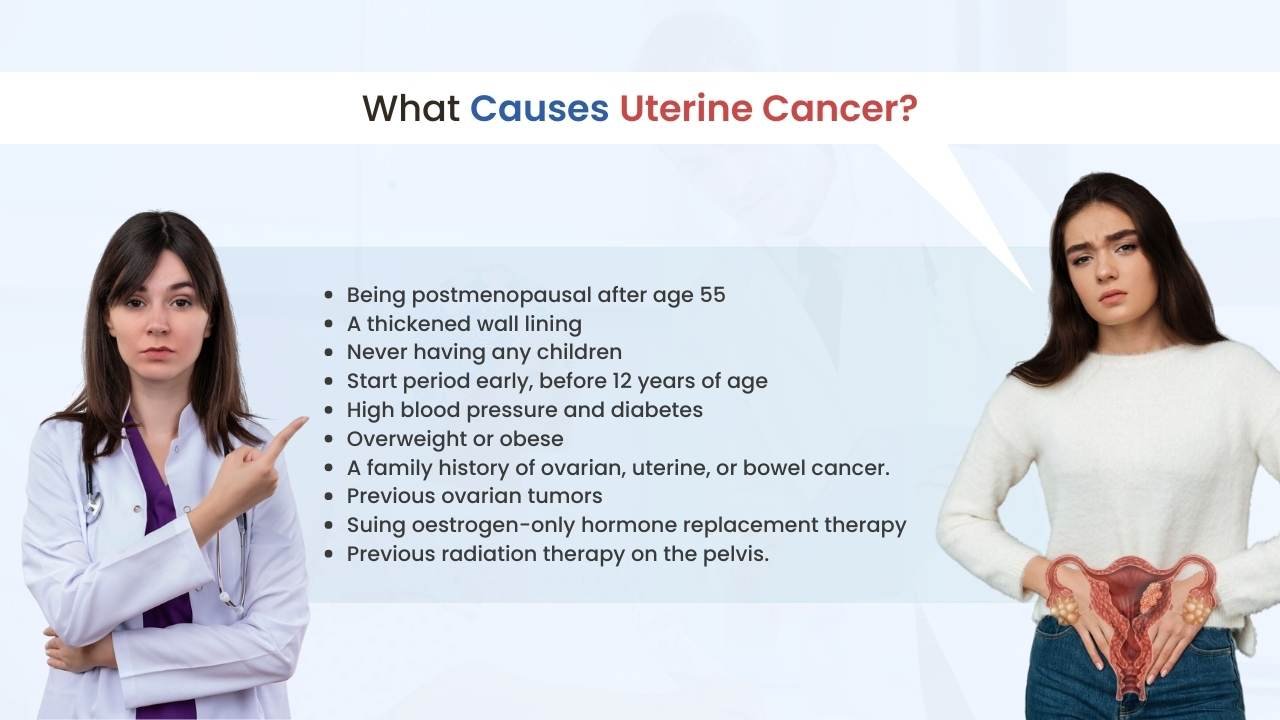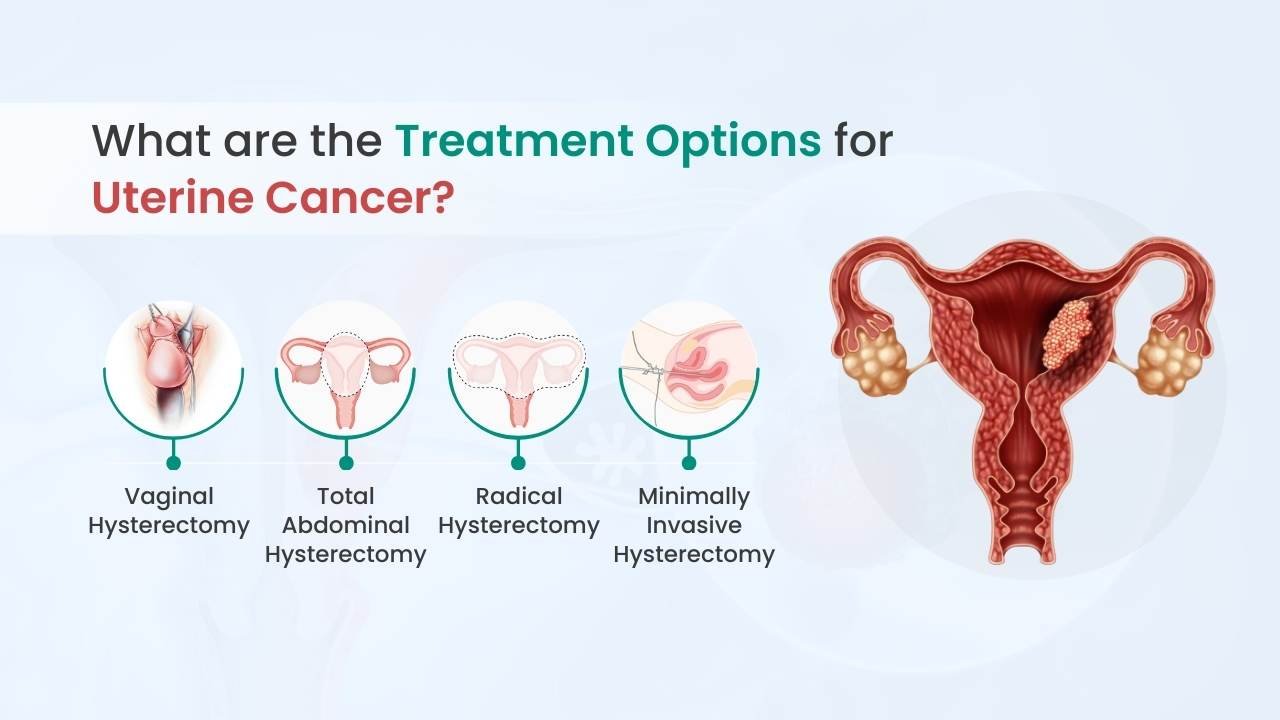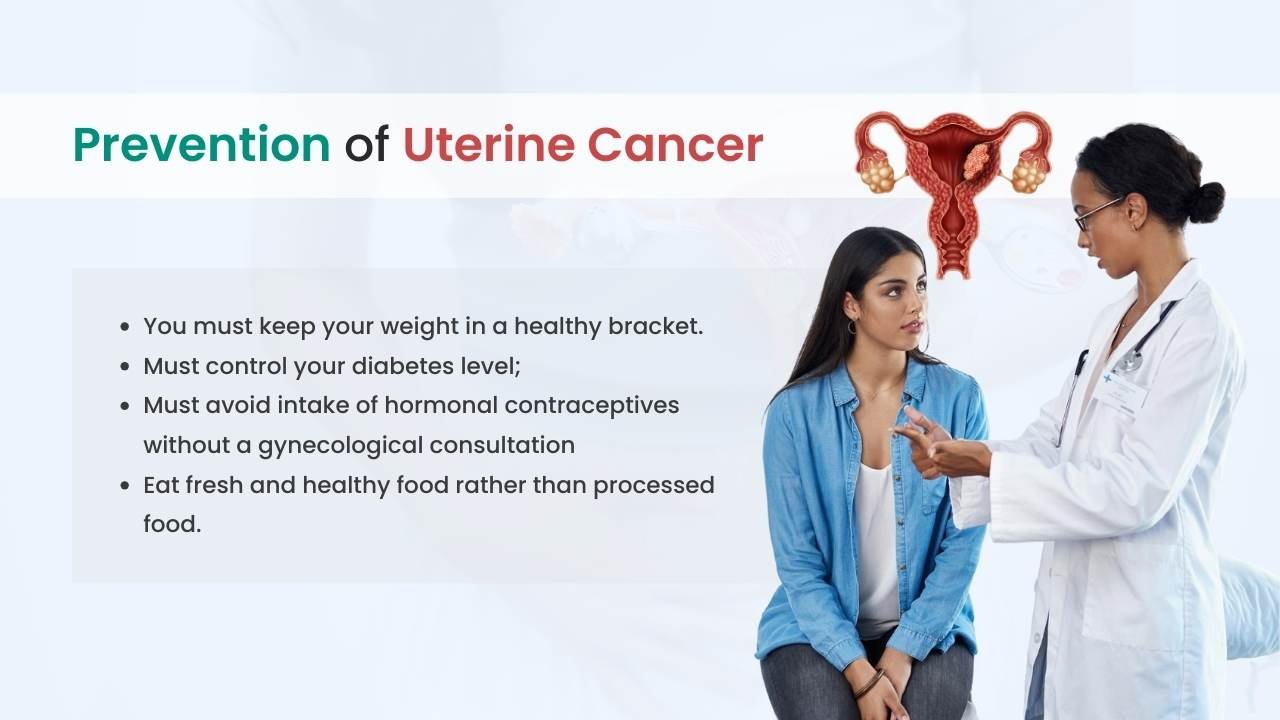Home Blogs Gynecology and Obstetrics How I Knew I Had Uterine Cancer?

Knowing how I knew I had uterine cancer and what symptoms can indicate cancer are major concerns for women. However, it's important to understand what causes uterine cancer to prevent it. Uterine cancer is the most common form of cancer that develops in the uterus of women due to abnormal growth of cells, which is caused by uncontrolled genetic mutation.
Willing to understand what causes uterine cancer and other aspects related to it.
Uterine cancer is an abnormal growth of cells that occurs in the uterus caused by uncontrolled genetic mutation; however, there are various surgical and non-surgical treatment options available to treat it, such as vaginal hysterectomy, total abdominal hysterectomy, chemotherapy, immunotherapy, and much more.
Willing to learn how I knew I had uterine cancer and its detailed information, read this article.
Uterine cancer is the most common form of cancer that occurs in the uterus of women because of abnormal growth of cells caused by an uncontrolled genetic mutation. However, there are two types of uterine cancer, which include endometrial cancer and uterine sarcomas.
However, endometrial cancer is the most common form of uterine cancer that appears in the lining of the uterus. In contrast, uterine sarcomas are rarely found in the muscle tissue of the uterus.
It all starts with the changes in menstrual cycles, like you may experience these symptoms:
Having these symptoms is not normal, so you should consult with your doctor to get a clear diagnosis.

Here are some of the factors that can increase the risk of uterine cancer, which include:
In the United States, endometrial cancer is the most common cancer that affects the reproductive system of women. However, endometrial cancer mainly occurs after menopause. However, about 3% women received a diagnosis of uterine cancer during their lives.

Generally, there are various treatment options, but surgery is the first choice to remove the uterine tumor so that its further progression to other healthy organs can be restricted. However, you may undergo hysterectomy surgical treatment to cure endometrial cancer. At first, the doctor will probably prescribe you an endometrial biopsy and other diagnostic tests to detect the stage of cancer, and based on that diagnosis, the doctor will recommend you one of the hysterectomy surgeries, which include:
However, there are some nonsurgical treatment options also available for uterine cancer, which include:
• Chemotherapy, which helps in removing cancerous cells by using powerful drugs.
• Hormone therapy, which helps in breaking the link between hormones and cancerous cells to prevent further progression.
• Radiation therapy uses strong beams to destroy the uterine cancer cells.
• Immunotherapy uses your own immune system to fight cancer cells.
• Targeted therapy helps to administer potent drugs to inhibit DNA mutation.

Well, it's not possible to completely prevent cancer, but some preventive measures can reduce the risk of uterine cancer, which include:
FAQs
No, it's not always a sign of cancer; however, it can be a symptom, especially in postmenopausal bleeding.
If it's caught late, then it has likely spread beyond the uterus to nearby tissues, lymph nodes, and distant organs, which leads to a significantly poorer prognosis and lower survival rate.
The early signs of uterine cancer are abnormal vaginal bleeding, such as spotting between periods or bleeding after menopause. However, other symptoms include unusual vaginal discharge, pelvic pain or pressure, and possibly pain during intercourse.
Well, uterine cancer can’t be entirely prevented, but you can lower the risk of cancer by maintaining a healthy weight and being physically active by using progestin-containing birth control, and managing diabetes and high blood pressure.
Yes, uterine cancer can be hereditary, but not all of them.
The success rate of uterine cancer is 95% in India.
Yes, uterine cancer can cause pain, yet it's not the most common symptom, like abnormal vaginal bleeding and discharge.
There are surgical and non-surgical treatment options available, for as chemotherapy, immunotherapy, targeted therapy, and hormone therapy, which are the non-surgical options. On the other hand, surgical options such as Vaginal Hysterectomy, Total Abdominal Hysterectomy, Radical Hysterectomy, and Minimally Invasive Hysterectomy are available.
Uterine cancer treatment cost in India starts from 3200 to 4500 USD.

Written By
I'm a content writer at Mejocare.com, where I create easy-to-understand and informative healthcare content. With 4+ years of experience, I help people learn about important health topics and connect with healthcare providers through clear and engaging writing.
I focus on making complex medical information simple and useful, ensuring that readers can easily find the answers they need.
What I do:
I’m committed to helping Mejocare share reliable health information with its readers.
SOURCE
HISTORY
At Mejocare, we prioritize accuracy and reliability. Our content is based on peer-reviewed studies, academic research, and medical associations. We avoid tertiary references. Learn more in our editorial policy. Trustworthy health information for you.
https://sahyadrihospital.com/blog/how-i-knew-i-had-uterine-cancer/ para no 2 https://scer247.com/post/how-i-knew-i-had-uterine-cancer/ para no 3 https://my.clevelandclinic.org/health/diseases/16409-uterine-cancer para no 6 https://www.cancer.org.au/cancer-information/types-of-cancer/uterine-cancer para no 4 https://www.careinsurance.com/blog/health-insurance-articles/uterine-cancer-causes-symptoms-and-treatments para no 2,5,6,7
CURRENT VERSION
Our care team can help you.
